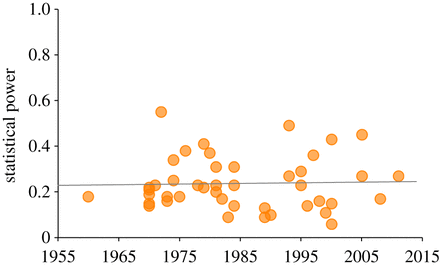British scientists have talked about how there were "British scientists"
Experts from the University of Exeter and Bristol (United Kingdom) decided to find out where are the "British scientists". Here it is, first and foremost, not on experts of different fields of science, who work in the UK. We consider the reason why a lot of experts are conducting studies that do not have much sense, but which can be broadcast loudly. The results of the investigation of the situation published Andrew Higginson and Marcus Munafo in the journal PLoS Biology.
According to the authors of the project, the main cause of the incident is the grant system, which operates in the country. It encourages researchers to give their projects and high-profile names to talk about at least a high-profile results. Moreover, these results, as a rule, are of no value to science in general, are too valuable or not.
The study's authors say that scientists should approach the study of a variety of processes objectively, trying to build on strengthening and building scientific knowledge.
"However, scientists are people too, and work in organizations where all aimed at getting money changes the way of thinking and behavior, even honest and conscientious professionals. This process is equally consciously and unconsciously, "- experts say.
Since the 80s of the last century, scientists are trying to add a "novelty" titles of their works. At the same time, only a small number of publications is important to science. Now more and more scientists trying to devote attention not pure science, and his career. Many aspire to publish as much work, which makes them better known, and the journey through the ranks - more rapid. Young professionals looking at principles of experienced colleagues, adopt their model work. This can be called adaptive behavior - this phenomenon is widespread in the world of nature and plays an important role in evolution.
In its work, Higginson and his colleague Marcus Munafo used methods of mathematics and statistics. They decided to find out the success of submission of grant applications and their results in the form of publications in scientific journals. At the beginning of the study authors suggested that researchers who work with grants, can use a general principle for their projects, allowing to obtain additional funds. It is interesting that many researchers, consciously or not, are trying to adjust their methods of work under the methods of evaluation of projects under consideration by the funds that provide grants. In general, it is obvious.
In order to trace the process of writing a grant proposal to "grant eaters", mathematicians have studied the principles of grant agencies, the UK and Australia. Scientists then used the data to construct a computer model, where "scientists" are trying to get as many grants from the grant committee. As it turned out, the most money get the researchers that offer small-scale projects with big words like "innovation", "new", etc. The problem of such projects in the reality that their results are tested poorly, and for the most part - and at all fitted to the original problem. The effectiveness of the scientists involved in such projects is very low. Only 10-40% of the results of such projects can be repeated. Consequently, most of the money spent in vain, and leaves no trace of a positive science. "
According to scientists from the UK, you can resolve the situation. To do this, reduce the number of small projects supported by sending funds to support large and medium-sized projects. Furthermore, the Commission needs to respond not sensationalism proposed developments, and on the methodology and the results of such work.
Average statistical power from 44 reviews of papers published in journals in the social and behavioural sciences between 1960 and 2011. Data are power to detect small effect sizes (d=0.2), assuming a false-positive rate of α=0.05, and indicate both very low power (mean=0.24) but also no increase over time (R2=0.00097).
Even in 1963, Ken Jacob, a psychologist at New York University, found that according to statistics the researcher expected result is shown in only 20% of the experiments performed. But in reality, almost all scholars point to the positive results of their research. In other words, the authors simply do not talk about failure, in some cases, distorting the results of their research. Paul Smaldino the University of California and Richard Mack Elres of the Max Planck Institute for Evolutionary Anthropology have shown that the authors of the research is still talk about their successes, hide losses.
Smaldino and Richard Mack Elres believe that the situation can be corrected only firm decision foundations and scientific organizations did not provide funds to scientists and laboratories, which previously published unaudited results of their research. Such organizations often give their expectations for a positive result. However, it is quite difficult to do, because the grant system exists for a long time, and its principles have taken root in the minds of scientists.
For this reason, more money and more rapid advancement through the ranks given to those professionals who give their works a loud name ( for example "Our technique allows to beat cancer") and publishes a large amount of materials. Those organizations who are trying to carefully calibrate their results are published less frequently, and are, so to speak, in the "shadows."


Interesting, nice post! Yeah grants should be awarded on merit of the research not on flashiness of the topic. Good science that the world can learn more of how things work should be what gets the money! :)
Yes, you are absolutely right, thanks!